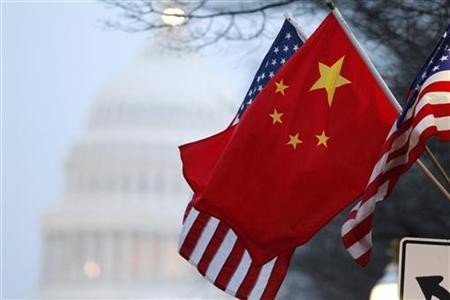After Reuters confirmed that China is still the world's second-largest economy after the U.S. this week, the eastern powerhouse deserves recognition for continually developing relations with its Western counterpart.
Also, the former should receive credit for a reciprocal dynamic that is proving beneficial during a challenging period in which falling oil prices have caused a burden on the global economy.
Any discussion of the Chinese economy in early 2015 must first take into account its comparatively slowed-down status, named by President Xi Jinping as the "new normal."
However, during his speech at the World Economic Forum (WEF) in Davos last month, Premier Li Keqiang reassured the attendees that, even though China's economic growth was measured at 7.4 percent in 2014 (the weakest annual result in 24 years), a slower rate of growth was advantageous.
In addition, businessmen like billionaire Jack Ma said that the "new normal" is evidence of China's focus on quality instead of quantity.
It must also be noted that Beijing is serving an estimated 1.5 billion people, which is equivalent to 1.5 times the combined population of the developed world. Such a situation allows for healthy bilateral relations with the U.S., which has greatly benefited from China's increasing demand for U.S. exports.
By 2007, China was America's third-largest exporting market, which was worth $164.8 billion in 2013. According to U.S. Secretary of State John Kerry, over 5,000 domestic jobs are created for every $1 billion worth of exports, meaning that China has assisted with 830,000 new U.S. positions.
China's stake in the U.S. is also considerable, with the total of China's actual investment in the U.S., from 2003 to 2013, equaling $25.5 billion. China's total investment in the U.S. is expected to rise above that of the U.S. in China by 2020. China's foreign exchange reserves have further bolstered its overseas investments, which will reach $1.25 trillion over the next decade.
Even though cyber-related issues continue to fill the negotiation table between Washington and Beijing, it will be important for the White House to maintain its handle on the economic ties that bind the two nations. With RMB liberalization high on the agenda of the Chinese government, the year of the goat may be a good time to embrace the trust that defines the animal sign.



























